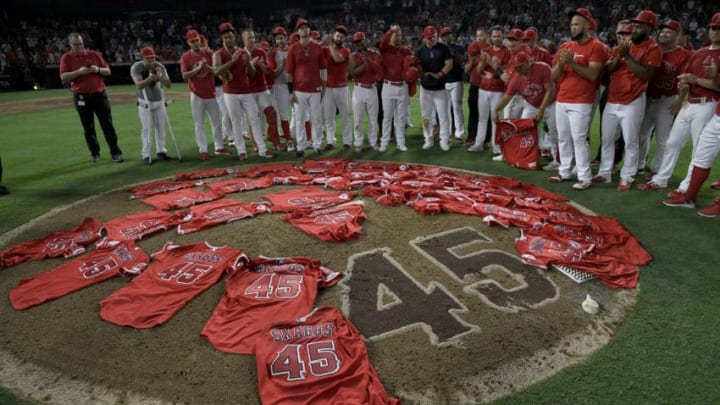
Los Angeles Angels: Tyler Skaggs’s death has gone to a Texas grand jury
Those Culpable in Skaggs’ Death
The Angels went to Texas for a set with the Rangers just before the All-Star break when Tyler Skaggs was found dead. The toxicology report forced one and all to ask honestly whether Skaggs acted on his own or whether he had persuasive help from someone thinking he or she was doing the pitcher a pain management favor.
Then-Angels communications director Eric Kay told federal Drug Enforcement Agency investigators he’d given the lefthander three of six oxycodone pills obtained illegally before the Los Angeles Angels left on that road trip. Kay also said he’d used oxy with Skaggs for a long time prior to that. He left the Angels and enrolled in a substance abuse program.
According to his mother, Kay retained counsel out of fear he might be scapegoated for the pitcher’s death. Shaikin says he hasn’t been called to talk to the Texas grand jury yet. But last October Kay issued a troubling public statement:
"I felt and continue to feel that it is time for everyone to stand up and take responsibility for their respective roles in this. Nothing anyone does will ever provide closure for the Skaggs family. I can’t, the Angels can’t, and the courts can’t, regardless of what happens there. But at least I can help them “know”‘ instead of “wonder.” My hope is that there is some peace in that for them."
Kay also suggested two Angel officials—his former boss, Tim Mead, now president of the Hall of Fame, and the team’s traveling secretary Tom Taylor—knew Skaggs had a drug problem. Both men denied knowing any such thing when asked. Four Angels players including Heaney also talked to DEA investigators but haven’t disclosed details of those talks while the investigations continue.
It’s entirely possible, perhaps even likely, that Skaggs became hooked on opioids after first being given them under purely medical circumstances. He had an injury history.
